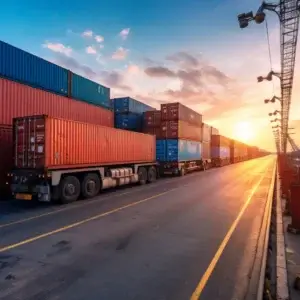
Surfactants are some of the most useful oilfield chemicals. Without them, oil drilling and fracking would be way less profitable and productive. Surfactants help in oil recovery from the ground. A feat that would require many more complex processes to achieve without these crucial chemicals.
But the use of surfactants transcends the oil and gas industry. These industrial chemicals are so important that they have critical uses across various fields. We use surfactants in soaps and detergents, lubricants, anti-fogging liquids, adhesives, fabric softeners, herbicides, emulsifiers, pharmaceutical formulations, cosmetics, and inks. Even the human body produces its surfactants.
Here in this article, you’ll learn everything you need to know about this widely useful chemical, including:
- What surfactants are, why they are so important in and out of the oilfield, and how they work.
- The benefits of surfactants.
- How safe surfactants are for the environment.
- And finally, the safe and reliable way to ship surfactants.
What Are Surfactants?
The name “surfactant” was originally coined from “Surface Active Agent”. This name suggests that surfactants act on surfaces. And in this case, the surfaces that surfactants act on are two phases that would normally not mix (like oil and water). It reduces the surface tension between the two phases so that the phases are more likely to mix.
You have surfactants in your house, and you probably don’t even know it. Most detergents, shampoos, lubricants, and other everyday chemicals usually have surfactants in them.

How Surfactants Work
Surfactants have unique properties that make them useful for various purposes. The molecules of the chemicals have two distinct parts; water-soluble and water-insoluble. This property allows surfactants to fit perfectly in between different phases, lower their surface tensions, and make it more likely for them to mix.
Have you tried washing an oily plate with just water? Or tried to wipe a spilled jar of mayonnaise clean? The plate still ends up oily because the water just washes over the surface of the oil. But when you add a detergent that has a surfactant in it, it makes the oil mix better with the water, making it easy to wash off.
Now, scale it up to the level of cleaning up oil spills at oilfields. With the help of surfactants, oil recovery becomes enhanced and less wasteful.
Benefits of Surfactants
You may already have an idea about the benefits of surfactants from what now know about what the chemicals are and how they work. But here are more detailed benefits of surfactants.
1. Surfactants Boost Cleaning Effectiveness
Cleaning agents, such as detergents, have surfactants in them to make cleaning more effective. Without surfactants in them, detergents would not mix with water, and cleaning would be stressful.
2. Eases Lubrication
Shaving creams have surfactants in them to reduce friction and ease the movement of the razor over the skin while reducing irritation. Lubricants in car engines also use surfactants to prevent particles from accumulating on the engine parts.
3. Saves Costs on the Oilfields
The use of surfactants in oilfields may be one of the most important uses of the chemicals. Cleaning up oil spills and recovering oil from the ground would require a lot of complex processes to complete without surfactants. And the more the processes are, the more oil companies spend.
Are surfactants Safe for the Environment?
All oilfield chemicals are subject to this question from the ever-scrutinizing hands of the environmental conservationists. And this is not surprising, as the oil drilling process involves a lot of processes and the use of chemicals that are not environment-friendly. But what about surfactants? Are they safe for the environment?
Thankfully, the American Cleaning Institute has invested time and resources into shedding light on this age-long debate. This investment is just another on the long list of contributions the body has made over years in a bid to promote environmental sustainability. They do this by inventing and improving approaches and tools to manage industrial chemicals, such as surfactants.
During the research, over 250 studies were carried out on the environmental toxicity and properties of four key high-volume surfactant classes. These surfactant classes are mostly used in various cleaning and personal care products. The conclusion was a positive one. The authors of the research paper concluded “that risk assessments demonstrate that these substances, although used in very high volume and widely released to the aquatic environment, have no adverse impact on the aquatic or sediment environments at current levels of use.”
How to Ship Surfactants
As it is with other chemicals, the shipping of these chemicals is just as important as the chemicals themselves. No one can use them if there aren’t ways to ship the surfactants from the manufacturers to the end-users. And so, the need for an appropriate shipping system for surfactants cannot be overemphasized.
Depending on the quantity of surfactants being shipped, the shipping methods of surfactants vary. Shippers tend to make use of drums or IBC totes to ship and ensure the long-term storage of small quantities of surfactants in liquid form. But the liquid bulk shipping of surfactants for industrial uses may use liquid bulk tanker trucks.
During this liquid bulk surfactant shipping, thousands of gallons of the chemicals are loaded into Stainless Steel Insulated (SSI) tanker trucks. And the trucks are manned by liquid chemical drivers who have adequate experience in safely transporting the chemical to their destinations. However, this sort of transport comes with its complications.
Challenges of Shipping Liquid Surfactants in Bulk
The major challenge that confronts the shipping of bulk liquid surfactants is the fact that surfactants are classified as hazardous materials. And the transport of hazardous materials comes with a lot of regulations and complications. These regulations are necessary because an accident involving hazardous surfactants could have severe impacts on the environment.
For instance, surfactants in their raw forms have negative reactions when they come in contact with human skin. And the reactions could worsen if consumed. So, this classification of surfactants as hazardous materials is an attempt by the United States to make the transport of the chemicals as safe as can be under the guidance of rules and regulations.
It however takes an experienced liquid chemical carrier to successfully transport the chemicals to their destinations hitch-free. The liquid chemical carrier needs to have the proper hazardous material certifications, a sixth sense familiarity with the regulations, and the proper hazmat transport training and equipment. Without these, the carrier and the chemical owners are liable to penalties from the bodies in charge of the shipping.
Only a few liquid bulk carriers qualify to handle this delicate task of shipping these highly dangerous chemicals, and Total Connection liquid bulk tanker carriers are among the few.
Ship Your Surfactants With Total Connection

Total Connection is a logistics company with over 20 years shipping oilfield and industrial chemicals all over the world. We have forged partnerships with the world’s leading distributors of surfactants, oil companies, and other industries to minimize your shipping costs by shortening your supply chain.
In our two-decades-plus of experience shipping surfactants, we have handled different complications and challenges, and we have mastered the job to the point of perfection. All you need is to fill the quote form below and our industrial chemical shipping experts will be in touch with you.





